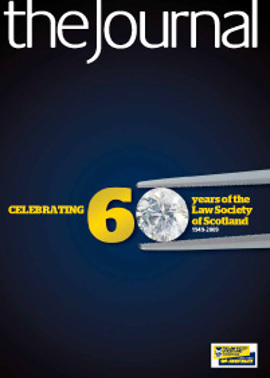Book reviews

Among English judges, indeed among British judges, of the last two decades of the 20th century and the first decade of the 21st, the name of Lord Woolf is probably the best known to the public and certainly among the most distinguished.
The sharp upward trend of his career at the bar and then on the bench, encompassing as it did the highest judicial offices: recorder, junior counsel for the Inland Revenue, First Treasury Junior Counsel (“Treasury Devil”), bencher of the Inner Temple, High Court judge (at 45), Presiding Judge of the South East Circuit, Lord Justice of Appeal, Lord of Appeal in Ordinary, Master of the Rolls, Lord Chief Justice of England & Wales, had the inevitable quality associated with an exceptional legal talent.
The legacy of that career is considerable and likely to prove long lasting. It includes the development of what Wade & Forsyth have described as the “almost boundless jurisdiction of judicial review” (Administrative Law (8th ed), preface), and the concordat of 2004 between Lord Woolf as Lord Chief Justice and the then Lord Chancellor, Lord Falconer, providing a framework for the future relationship between government and the judiciary of England & Wales, as reflected in the Constitutional Reform Act 2005; and the reports of two important inquiries, concerning the Strangeways Prison riots in April 1990, and the Access to Justice Final Report of 1996 which led to quite radical change in English civil procedure.
When he appeared on Desert Island Discs in June 2008, he revealed that he ascribed his strong lifelong desire to fight injustice to experiences during his schooldays at Fettes in Edinburgh. Such can be the benefits of a public school education!
Remarkably, notwithstanding formidable workloads, very senior members of the judiciary do find time to write books and contribute scholarly articles to the journals. Lord Woolf himself is an editor of De Smith’s Judicial Review. However, it is in the public lecture that leading judges most frequently have the opportunity, as Lord Woolf has put it, of raising their sights from the detail of individual cases and viewing the subject of the law and its practice from a wider perspective. Such lectures risk being ephemeral with much of importance being lost as a result. Hence the value of a collection such as The Pursuit of Justice, which preserves 24 of Lord Woolf’s lectures, only some of which have been published elsewhere. To these are added the introductory overviews of, respectively, the Strangeways Prison report and the Access to Justice Final Report.
Their author is well served by his editor, Christopher Campbell-Holt, who provides a crisp introductory abstract for each paper and updates references with a view to stating the law as at the end of 2007. The 26 papers are organised thematically under five titles: “The English Legal System”, “The Constitution and the Judiciary”, “Crime and Penal Reform”, “Civil Justice”, and “International Legal Systems”. Generally, this scheme works well, presenting a coherent and accessible account of the role of the judge and the issues to be faced as he or she aspires to do justice at the beginning of the 21st century. It is the merest of quibbles to observe that the first title, “The English Legal System”, might be apt to mislead. The first three lectures collected under this head relate to administrative law and judicial review and the fourth concerns university law teaching.
The 26 papers are written in a simple, lucid style by someone who has been at the centre of events at a time of fast development in public law and major procedural reform but, perhaps even more significantly, also at a time of important constitutional changes in the relationships among Government, the courts and the judiciary. In Scotland we too are about to embark on change in this area. It is an appropriate moment to read what Lord Woolf has to say, particularly in the lectures collected under the head, “The Constitution and the Judiciary”, and to reflect.
In this issue
- Defining year
- At the heart of the debate
- In shape at 60
- Banks doing business
- To take us forward
- Striving after fairness
- Knowledge is protection
- The changing role of the law school
- Risk: nip it in the bud
- Close relations
- Conference keeps getting better
- Booming baby boomer
- Channel vision
- Variations on a theme
- Customer survey scores a plus
- Prepare for the upturn
- New look Society gets go-ahead
- Backing for "Wider Choice"
- Private client tax specialists recognised
- Law reform update
- From the Brussels office
- Target 2010
- Questions of our times
- Ask Ash
- Breaking the chain
- What will they do next?
- Sins of emission
- Scottish Solicitors' Discipline Tribunal
- Are we ready?
- Website review
- Book reviews
- Duty within bounds
- Change to fair
- Home reports update






